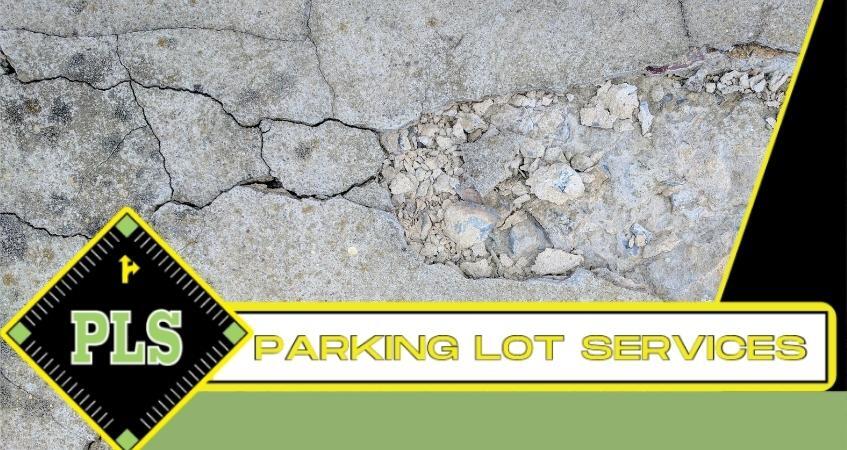Learn how concrete cracks form and some tips to prevent this common problem.
Concrete is frequently used throughout commercial properties, whether it’s sidewalks, patios, or parking lots. Installing concrete is a great option due to its durability and low maintenance. However, cracks can eventually appear within the concrete over time. Learning how concrete cracks are important in limiting these problems while increasing the curb appeal of your property.
How Does Concrete Crack?
Concrete can crack over time for a variety of reasons. Sometimes it’s due to improper installation, elastic deformation, cold weather, or a chemical reaction. Understanding the tensile strength of concrete is also essential to avoiding many cracks. Hiring a well-regarded concrete installer with years of experience is a good idea to help you avoid many of these problems.
Here is an overview of a few of the most common types of cracks on a concrete surface.
Shrinkage Cracks
Concrete is full of excess water during its plastic state, which is before the concrete hardens. All of this water will eventually evaporate and create voids within the concrete. These empty areas weaken the strength of the concrete and increase the likelihood of cracks.
Plastic shrinkage cracks are usually narrow and barely visible. The best way to limit shrinkage cracks is to hire a well-qualified concrete paving contractor that understands the right amount of water to use during the installation process. Experienced concrete contractors will often use control joints to limit shrinkage cracks.
Overloading Cracks
Concrete remains one of the most durable building materials, but it does have a limit on how much load it can handle. Placing too much weight on concrete slabs will eventually result in cracks. Each concrete mix has a specific strength, such as 3000 or 5000 PSI, which refers to the pounds per square inch required before cracking occurs. An experienced contractor will understand the optimal tensile stress for your type of concrete to avoid overloading cracks.
Heaving Cracks
A tree that’s too close to a slab can cause heaving cracks. The ever-expanding roots can lift the concrete surface and cause significant cracks. Considering the placement of a slab is critical to avoid this issue.
Heaving cracks can also happen during the freezing and thawing process, as the ground may lift a few inches. Luckily, this problem isn’t too common in Florida due to the mild winters.
Expansion Cracks
An excessive amount of heat will cause concrete to expand and eventually crack if it doesn’t have the room to flex. These cracks are especially common if the concrete is next to another slab or brick wall. One way to avoid these common problems is to install expansion joints between both surfaces. A compressible material is often used as shock absorbers to help relieve stress and prevent cracking, such as rubber, asphalt, or lumber.
Settlement Cracks
The ground moving beneath a concrete slab can also result in cracks. These settlement cracks often happen if a void is formed underneath the surface of the concrete. This may happen if a nearby large tree is removed and the roots start decomposing or if utility workers dig a trench without compacting the soil. You can use a concrete sealer to repair any visible cracks that are over 1/8th-inch in width.
Premature Drying Cracks
Sometimes cracks can happen during concrete placement because of premature drying. These small surface cracks will appear due to evaporation happening too quickly. While these cracks are unsightly, they don’t pose any structural issues.
This problem often happens while installing concrete pavements on windy or sunny days. Building a temporary windbreak or using an evaporation retardant can help limit premature drying of concrete.
Contact PLS to Learn How Concrete Cracks
Parking Lot Services (PLS) specializes in asphalt and concrete maintenance for commercial properties and business owners in Tampa Bay. Our concrete repair and installation company has many years of experience in the industry, whether you need parking lot repair, striping, concrete, or ADA compliance services. We are also available to answer all of your questions and discuss how concrete cracks over time.

